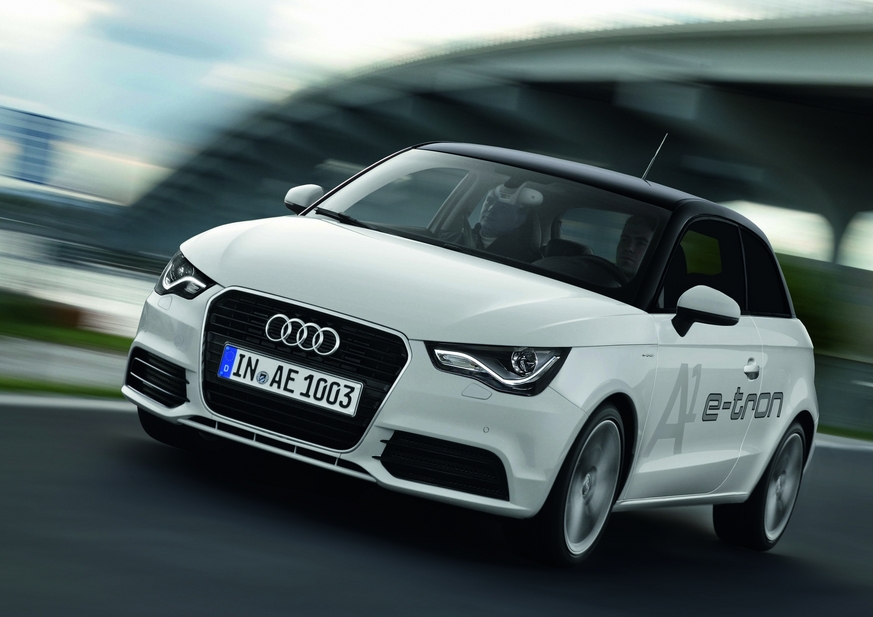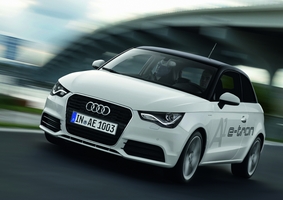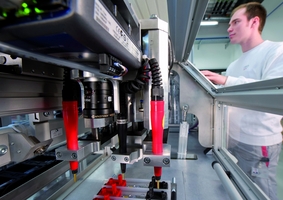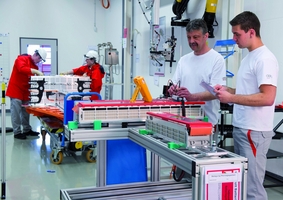|
Send this page to a friend! Fill in the form bellow | ||
news
Audi Opens Work Site for Battery Development
Audi AudiGermany, 1909 > present83 models
AudiGermany, 1909 > present83 models
8213 photos
27 videos
is serious about developing safe, high voltage batteries for its future E-tron models. So serious in fact that is has just opened a work site 2km away from its Ingolstadt headquarters in Gaimersheim, Germany, that will create manufacturing techniques for future high voltage batteries, test new batteries and house an office for development of these technologies.
Audi began building the 3,500m² site two years ago and a limited number of workers began working there a year ago. It is now fully up an running with about 100 employees at the facility. Audi has partnered with Panasonic who supplies them with battery cells for experimentation.
The center will be responsible for testing and developing high voltage batteries, prototyping and small-series production of high voltage batteries and design of hardware and software to work with these batteries. It will also produce the batteries for the A1 E-tron Audi A1 e-tron conceptGermany, 2010 > 20102 photos
Audi A1 e-tron conceptGermany, 2010 > 20102 photos
and R8 E-tron Audi R8 e-tronGermany, 2009 > present3 photos
Audi R8 e-tronGermany, 2009 > present3 photos
.
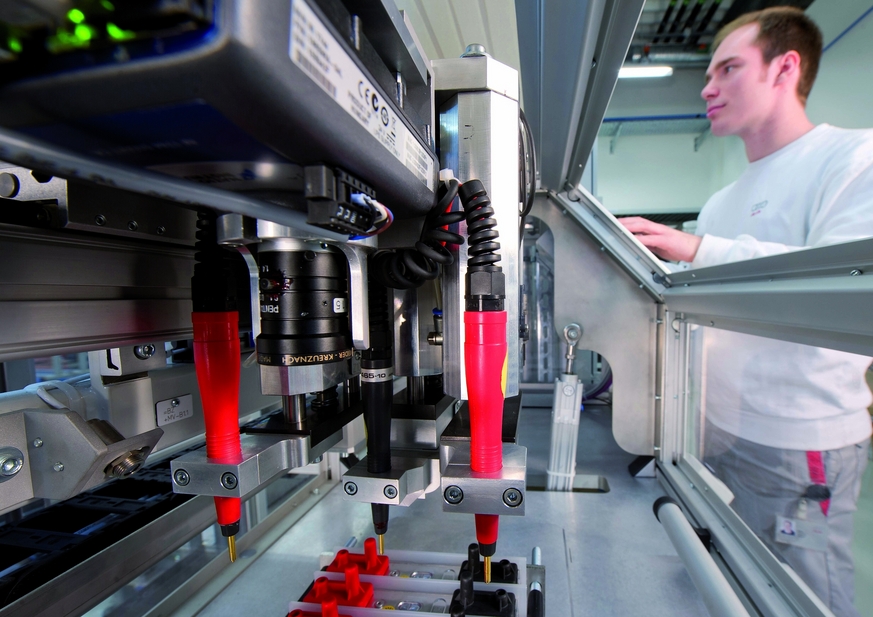
Audi has a full test center at the facility for evaluating new batteries
The batteries that Audi is producing at the center are made up of modular cells that can be combined as necessary. The post powerful are the 48kWh batteries developed for the R8 E-tron. However, the production of them is still complicated, and they are built one-by-one with about 70 finished so far for the A1 E-tron and R8 E-tron. The batteries are housed in CFRP containers for safety when installed on the vehicles.
“Here we are building up important development and manufacturing expertise for high-voltage batteries with a view to future model series. At the same time, we are ensuring that they meet Audi’s exacting quality requirements,” Michael Dick, member of the Audi board.
Batteries for electric cars must be light, compact and powerful. Audi is also ensuring that its battery systems will last up to 160,000km and not lose significant performance over 10 years. They also must withstand temperatures between 25° and 45° Celsius. Audi has testing equipment at its new center that can take its batteries to between -40°C and +80°C and put them under extreme humidity. These test benches can also simulate years of use.
In Audi's nomenclature E-tron denotes range-extended hybrid powertrains with an internal combustion engine that acts as a generator for an electric motor. It can also identify certain long-range hybrid powertrains like the E-tron Spyder that uses a diesel engine to power the rear wheels and electric motors to power the front. Finally, Audi also uses the term for purely electric cars like the R8 E-tron. Audi's plan is to offer E-tron engines in every market segment by 2020.
Encyclopedia |
Contribute
more about Audi



latest news




